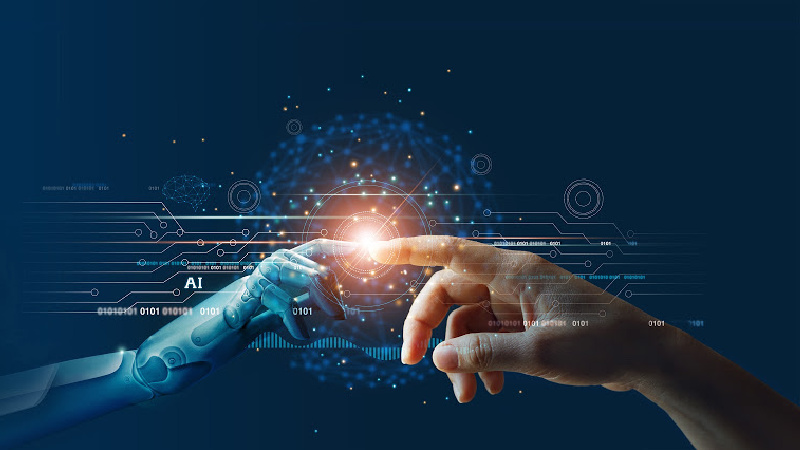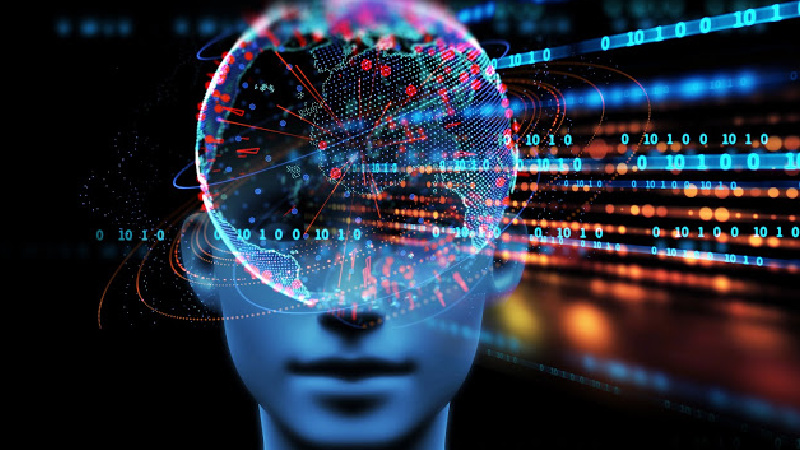Does AI application in real life seem overwhelming? You might think it is only limited to the technology domain, but this is not the case. AI basics have ordinary use than you can imagine, and it is applicable in everyday activities such as real-time web navigation and many routine operations. Here are daily AI applications and artificial intelligence examples in everyday life that have transformed our lives completely. Let’s talk about AI in daily life.

Artificial Intelligence in our Daily Life
Artificial intelligence aims to create smart machines in everyday activities. Also, artificial intelligence in our daily life applies to machines that are easily programmed to perform specific tasks. They include watches, phones, and facial recognition technology. Although the facial recognition devices can distinguish faces elaborately at a higher speed than humans, it does not distinguish between cars, houses and other physical objects. It is specifically programmed to know the faces of people. Also, AI continues to thrive and might be fitted almost in all electronic devices in the future.
AI Applications in Real Life
So AI applications in real life below:
• Managing activities
AI applications in real life would involve managing daily activities using internet interconnectivity. For instance, one can use virtual assistants, and Chatbots to perform searches, create to-do lists, answer questions, set reminders, and order items online. You could integrate the AI with smart home with efficient entertainment systems that can be automated to perform your daily activities. The Chatbots might act as communication interfaces that utilize interface algorithms that train machines and cater to the consumers. They are advanced business tools that can help consumers ask questions. The consumers could feel like they are interacting with real humans as they answer the questions effectively.
• Agriculture sector
Moreover, AI applying in agriculture and farming to monitor systems that help farmers boost crop production. Robots, autonomous tractors, and drones help monitor crop health conditions by implementing harvesting and enhanced crop production.

• Transportation
Transportation systems use autonomous vehicles and aircraft that use AI. Although self-driving vehicles are still in an infant stage, there are enough prototypes that suggest that autonomous vehicles will be successful when matured.
• Machine learning
Machine learning is a part of AI technology that improves consumers’ online shopping experience through personalized recommendations and improved buying processes. Automated warehouses and supply chain management that use AI have improved logistics and organizations.
• Security and surveillance
Drone surveillance based on AI facial identification and biometric system enhances security for organizations and governments. Although drones collect security data, there have been concerns with data privacy and spying, which do not sit well with the general public.
• Manufacturing and production
AI is critical in the industrial sector as it helps manufacturers maintain quality and standard, and it keeps many operations running. AI could proactively monitor data and analyze information which is vital in production. The robotic process automation in the manufacturing sector shortens the production cycles and boosts efficiency.
• Healthcare and Imaging Analyses
AI in health care using power machines that help diagnose, analyze, and predict different diseases. Artificial Intelligence eases the physical workload that goes into predicting disease aids in routine care in health care facilities.
• AI-Powered google search
Google AI search has aid search engine optimization progressively, promoting advanced information sharing. It is easier to learn through language translation, video chats, and image search through the powerful Google Lens Powers. You will find products and useful information even if all you have is a picture. Moreover, phones use AI-based generators which imitate human writers.
Examples of Artificial Intelligence in Everyday Life
Examples of artificial intelligence in everyday life include robots used in the manufacturing sector, phones, automated machines, and computers. AI assistance like Siri, Alexa, and Cortana help are forms of everyday artificial intelligence.
In conclusion, artificial Intelligence is present in our daily lives and has transformed the world completely. Phones use technology to complete everyday tasks like sending a message and making calls; moreover, some might fit with AI that reads facial features and fingerprints to safeguard privacy. Moreover, security systems have adapted AI in their operations which helps them recognize faces. It helps stop crimes as machines easily identify people compared to when humans could identify them. Most of the information channels utilize AI to run information and keep taps with everyday activities. For instance, Google searches automate to allow users to find information quickly on the internet.